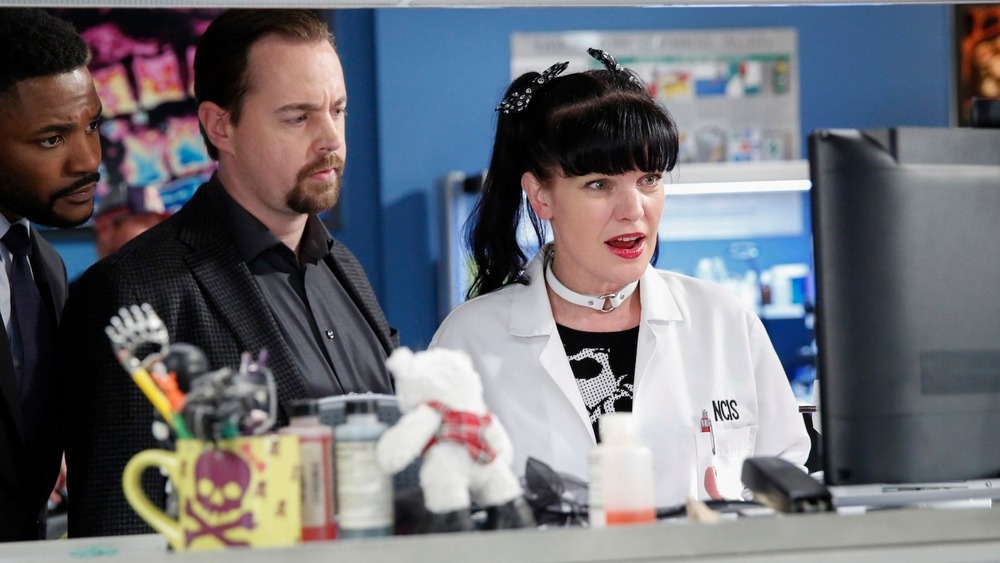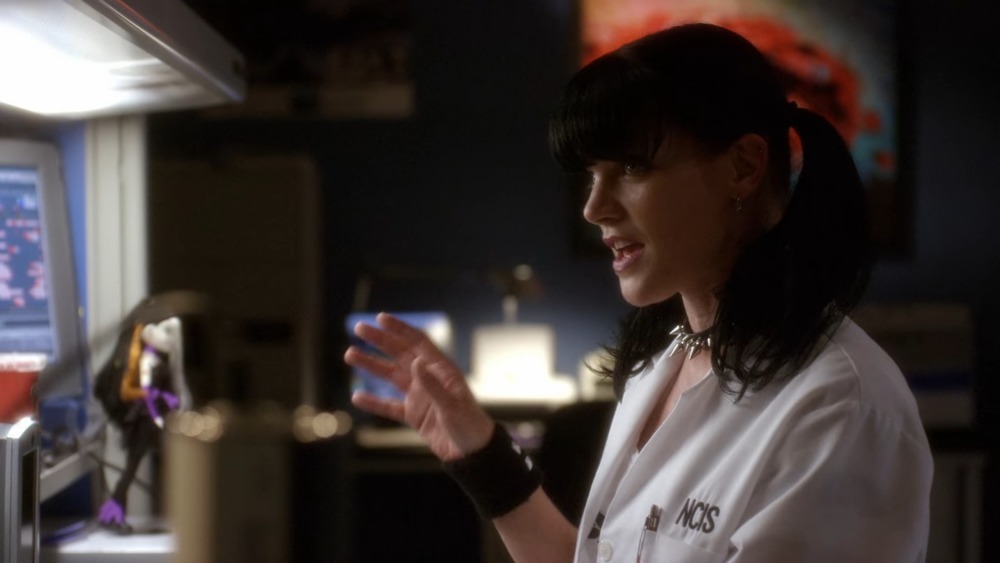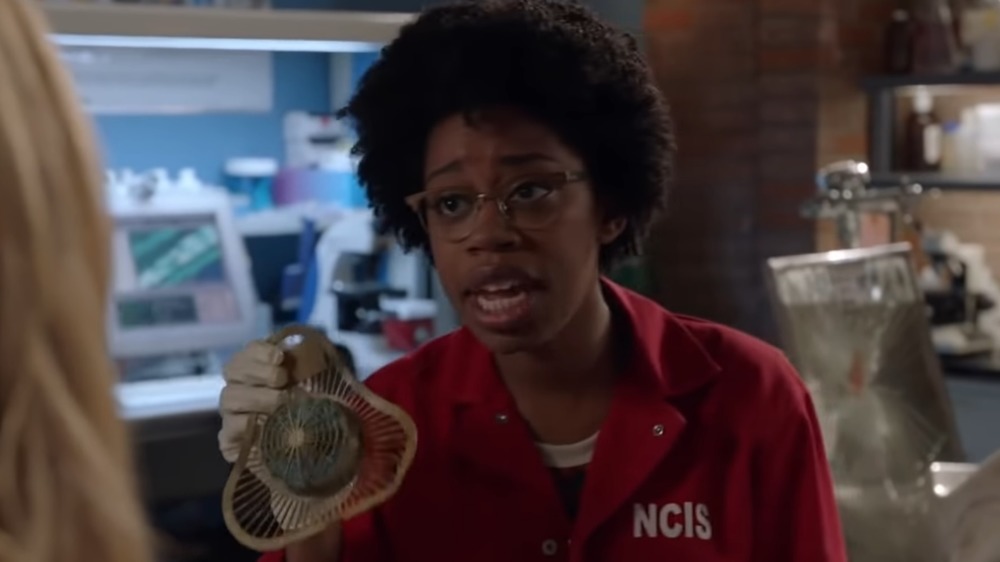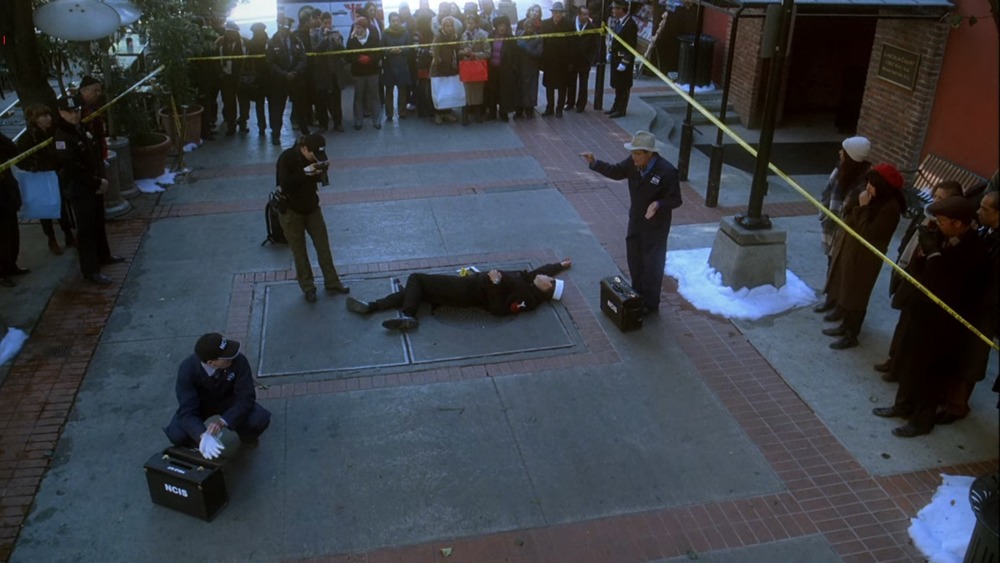Here's What NCIS Gets Wrong About Crime Scene Investigations
Realism can be a tricky tightrope for TV crime dramas to walk. On one hand, getting the details right about the investigation procedures gives the show a greater air of credibility. On the other hand, adhering too strictly to the minutiae of evidence gathering and analysis can sap all the excitement out of the proceedings. The NCIS franchise has made a name for itself by walking that tightrope. The fact that it's been on the air for nearly 20 years (and exists in its own MCU style universe) is a sign that it has mostly struck the right balance between realism and fictional expediency.
But that hardly means the show gets everything right.
Some fans might be content to live in ignorant bliss about what the NCIS franchise gets wrong about crime scene investigations, but we don't count ourselves among them. In order to get an expert take on the matter, Looper reached out to Jennifer Shen, the former Crime Laboratory Director for the San Diego Police Department. She helped us break down a few key areas in which the franchise gets the details dead wrong.
Forensic investigations take more time and more people to complete
Like many procedural shows, NCIS typically relies on the "case of the week" formula, in which a crime is introduced and solved in the span of one episode. This ensures a fast-paced show that keeps viewers tuning in every week, but at the cost of accuracy. In reality, these types of investigations take way, way longer than they are portrayed on the show.
Shen pointed out this discrepancy between NCIS investigations and the real world, stating, "That is something that happens frequently in NCIS, wherein amazing evidence that would take weeks to analyze is magically done very quickly."
This unrealistic time crunch is exacerbated by another big discrepancy: Forensic analysis isn't a one-woman job. Speaking specifically about NCIS' resident forensic scientist Abby Sciuto (Pauley Perrette), Shen said, "The fact that she can do DNA, hack cell phones, fingerprint comparisons, look for fibers, do crime scene reconstruction, identify firearms, match bullets, reconstruct bombs, do facial recognition, enhance videos, identify drugs and poisons, and a variety of other extraneous things that don't exist in crime laboratories, is just too much!"
According to Shen, "The demands on each of the individual specialties are so great, that the scientists now specialize. It takes 1-5 years to train a forensic scientist in any of the forensic disciplines, much less train someone in all of them!" Even if we accept that Abby is a forensics wunderkind, it's totally unrealistic for her to be a one-woman crime lab.
Some of the forensic investigations on NCIS are simply unrealistic
Another unrealistic expectation the franchise puts on its forensic analysts is their ability to spin gold out of straw, or, in the case of NCIS season 16 episode "Beneath the Surface," a specific DNA match from a truck stop bathroom.
In the episode, Abby's successor, Kasie Hines (Diona Reasonover), is trying to find a suspected killer's DNA by swabbing down surfaces collected from a truck stop bathroom where the team found two dead bodies. Kasie is frustrated by the process of trying to isolate one person's DNA from well-used toilet seats and urinal cakes, and for good reason.
"Any evidence that has more than 4-5 people's DNA present cannot be deconvoluted into separate types, that could then be run in a database, or even compared to a known sample," Shen explained. "Think of each DNA profile as a 1000 piece puzzle, where the pieces have been jumbled up and thrown in a pile...Think of having five 1000 piece puzzles, with 5 different pictures, all jumbled together in a big pile...how hard would that be to reassemble into 5 different pictures?"
Of course, when talking about urine caked onto a toilet seat in a truck stop, we're dealing with way more than five people's DNA. Shen pointed out, "[Y]ou can see why 10, 20, 100 puzzles quickly becomes overwhelming..."
While it's exciting for the purposes of a TV narrative to see the team overcome the odds to solve a case, sometimes NCIS gives them problems that are simply too extreme.
There are crime scene etiquette issues on NCIS
The issues Shen has with NCIS' accuracy don't stop at the lab. She also pointed to scenes of the agents out in the field as big believability problems for the show. One glaring example occurred in the NCIS: Los Angeles season 6 episode "Black Budget." While investigating a crime that happened in an accounting office, Marty Deeks (Eric Christian Olsen) takes a break to hit up the company vending machine for some chips, which he eats at one of the cubicles.
This was a huge problem for Shen, who exclaimed, "You NEVER EVER eat at a crime scene. Good grief." She went on to explain, "Eating (particularly using your hands) ensures that you are spreading your DNA on everything you touch. Plus, you never know what might be important."
Another example of some problematic crime scene procedure came during the NCIS episode "Broken Bird," from the series' sixth season. In a now-infamous moment, beloved NCIS veteran Ducky (David McCallum) is stabbed in the middle of a crime scene on the street after a bystander reaches under the police tape and grabs the murder weapon.
According to Shen, the attacker never should have been able to get close enough to the knife in the first place, let alone Ducky: "Crime scene perimeters are generally set up with a very large perimeter. In this case, they would have shut down the street at least, as you are never sure where the evidence may be, and you need to protect the crime scene processing itself...that would never happen."
All these examples should give fans something to keep a lookout for when NCIS returns for a shortened season 18 on November 17.



